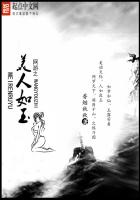VERSE 11. But that no man is justified by the law in the sight of God, it is evident: for, The just shall live by faith.
The Apostle draws into his argument the testimony of the Prophet Habakkuk: "The just shall live by his faith." This passage carries much weight because it eliminates the Law and the deeds of the Law as factors in the process of our justification.
The scholastics misconstrue this passage by saying: "The just shall live by faith, if it is a working faith, or a faith formed and performed by charitable works." Their annotation is a forgery. To speak of formed or unformed faith, a sort of double faith, is contrary to the Scriptures. If charitable works can form and perfect faith I am forced to say eventually that charitable deeds constitute the essential factor in the Christian religion.
Christ and His benefits would be lost to us.
VERSE 12. And the law is not of faith.
In direct opposition to the scholastics Paul declares: "The law is not of faith." What is this charity the scholastics talk so much about? Does not the Law command charity? The fact is the Law commands nothing but charity, as we may gather from the following Scripture passages: "Thou shalt love the Lord thy God with all thine heart, and with all thy soul, and with all thy might" (Deut. 6:5.) "Strewing mercy unto thousands of them that love me, and keep my commandments." (Exodus 20:6.) "On these two commandments hang all the law and the prophets." (Matt. 22:40.) If the law requires charity, charity is part of the Law and not of faith. Since Christ has displaced the Law which commands charity, it follows that charity has been abrogated with the Law as a factor in our justification, and only faith is left.
VERSE 12. But, The man that doeth them shall live in them.
Paul undertakes to explain the difference between the righteousness of the Law and the righteousness of faith. The righteousness of the Law is the fulfillment of the Law according to the passage: "The man that doeth them shall live in them." The righteousness of faith is to believe the Gospel according to the passage: "The just shall live by faith." The Law is a statement of debit, the Gospel a statement of credit. By this distinction Paul explains why charity which is the commandment of the Law cannot justify, because the Law contributes nothing to our justification.
Indeed, works do follow after faith, but faith is not therefore a meritorious work. Faith is a gift. The character and limitations of the Law must be rigidly maintained.
When we believe in Christ we live by faith. When we believe in the Law we may be active enough but we have no life. The function of the Law is not to give life; the function of the Law is to kill. True, the Law says: "The man that doeth them shall live in them." But where is the person who can do "them," i.e., love God with all his heart, soul, and mind, and his neighbor as himself?
Paul has nothing against those who are justified by faith and therefore are true doers of the Law. He opposes those who think they can fulfill the Law when in reality they can only sin against the Law by trying to obtain righteousness by the Law. The Law demands that we fear, love, and worship God with a true faith. The law-workers fail to do this. Instead, they invent new modes of worship and new kinds of works which God never commanded. They provoke His anger according to the passage: "But in vain they do worship me, teaching for doctrines the commandments of men." (Matthew 15:9.) Hence, the law-righteous workers are downright rebels against God, and idolaters who constantly sin against the first commandment. In short, they are no good at-all though outwardly they seem to be extremely solicitous of the honor of God.
We who are justified by faith as the saints of old, may be under the Law, but we are not under the curse of the Law because sin is not imputed to us for Christ's sake. If the Law cannot be fulfilled by the believers, if sin continues to cling to them despite their love for God, what can you expect of people who are not yet justified by faith, who are still enemies of God and His Word, like the unbelieving law-workers? It goes to show how impossible it is for those who have not been justified by faith to fulfill the Law.
VERSE 13. Christ hath redeemed us from the curse of the law, being made a curse for us: for it is written, Cursed is every one that hangeth on a tree.
Jerome and his present-day followers rack their miserable brains over this comforting passage in an effort to save Christ from the fancied insult of being called a curse. They say: "This quotation from Moses does not apply to Christ. Paul is taking liberties with Moses by generalizing the statements in Deuteronomy 21:23. Moses has 'he that is hanged.' Paul puts it 'every one that hangeth.' On the other hand, Paul omits the words 'of God' in his quotation from Moses: 'For he that is hanged is accursed of God.'
Moses speaks of a criminal who is worthy of death." "How," our opponents ask, "can this passage be applied to the holy Christ as if He were accursed of God and worthy to be hanged?" This piece of exegesis may impress the ***** as a zealous attempt to defend the honor and glory of Christ. Let us see what Paul has in mind.
Paul does not say that Christ was made a curse for Himself. The accent is on the two words "for us." Christ is personally innocent. Personally, He did not deserve to be hanged for any crime of His own doing. But because Christ took the place of others who were sinners, He was hanged like any other transgressor. The Law of Moses leaves no loopholes. It says that a transgressor should be hanged. Who are the other sinners? We are. The sentence of death and everlasting damnation had long been pronounced over us. But Christ took all our sins and died for them on the Cross. "He was numbered with the transgressors; and he bare the sin of many, and made intercession for the transgressors." (Isaiah 53:12.)















